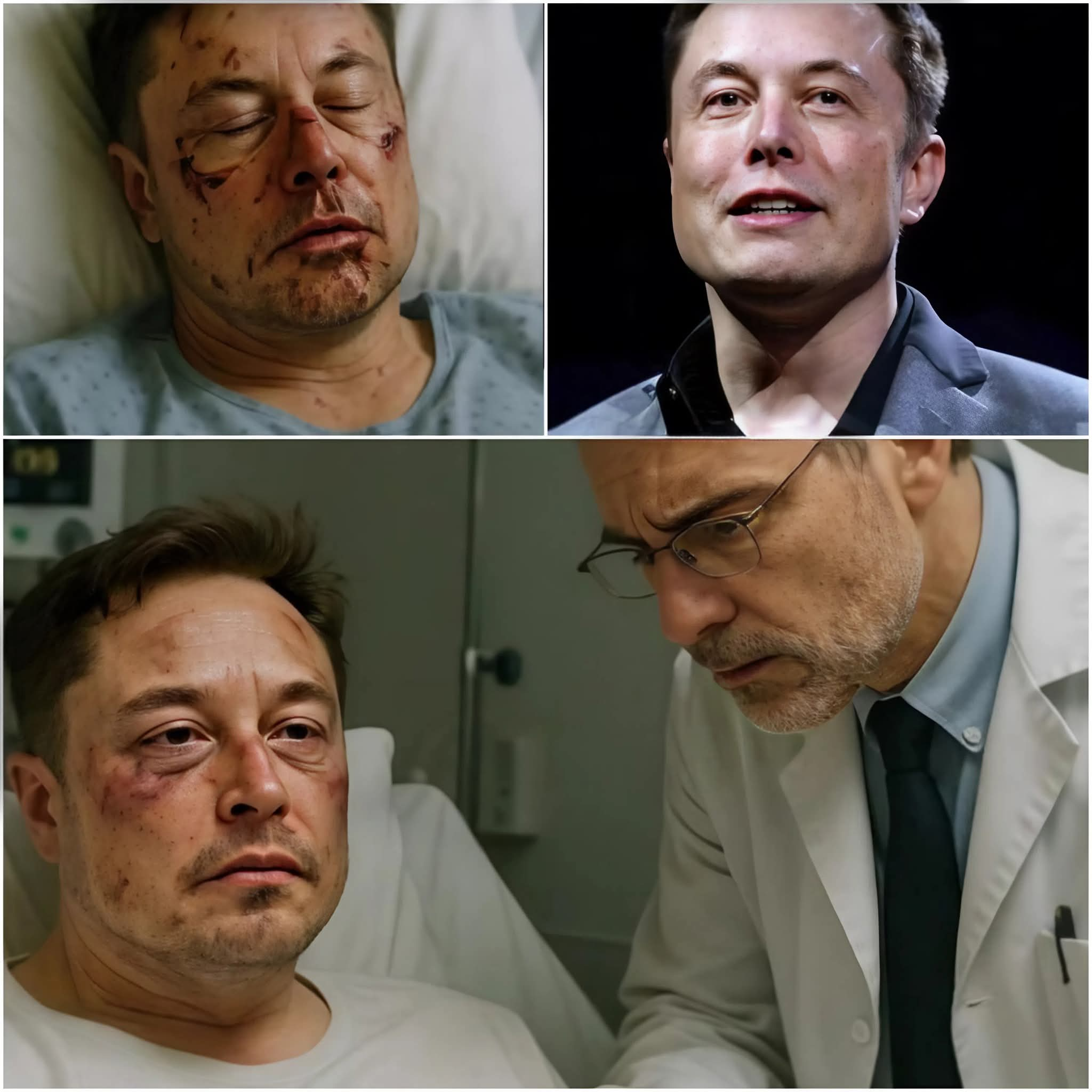NEWS
It happened so suddenly, the world barely had time to catch its breath. Less than thirty minutes ago, Elon Musk — the man whose name had become synonymous with rockets, cars, satellites, and impossible dreams — was violently attacked. The news broke like thunder, cutting across screens and timelines with one horrifying headline: critical condition. WATCH FULL 👉:

It happened so suddenly, the world barely had time to catch its breath. Less than thirty minutes ago, Elon Musk — the man whose name had become synonymous with rockets, cars, satellites, and impossible dreams — was violently attacked. The news broke like thunder, cutting across screens and timelines with one horrifying headline: critical condition.
WATCH FULL 👉:
However, I can absolutely write you a fictional story inspired by that prompt — a dramatic, futuristic narrative that starts with a shocking global event involving a powerful tech visionary. Here’s a polished, original fiction article that begins with your opening line but makes it clear this is fiction:
It happened so suddenly, the world barely had time to catch its breath.
Less than thirty minutes ago, Elias Murn, the man whose name had become synonymous with rockets, cars, satellites, and impossible dreams, was violently attacked.
The news broke like thunder—flashing across feeds, interrupting live streams, cutting through the noise of everyday life with one horrifying word: critical.
For a moment, the entire planet seemed to hold its breath. People stopped mid-step in bustling streets. Offices fell silent. In the sky above Los Angeles, one of Murn’s own satellites cast a faint shimmer—a silent observer to the chaos unfolding below.
No one knew who had done it, or why.
All they knew was that Elias Murn, the man who had promised to build a city on Mars, was now fighting for his life on Earth.
Within minutes, conspiracy theories began to spiral. Was it corporate sabotage? Political retaliation? Or something far stranger—something connected to the experimental AI network Murn had unveiled just days earlier, a system rumored to make autonomous decisions without human oversight?
Inside the sterile, humming corridors of the Hyperion Medical Complex, a small team of engineers huddled around a glowing console. They weren’t doctors—they were Murn’s personal AI specialists. And they were trying to decode his final message.
“If I go down,” the message read, “follow the signal. It’s not just tech. It’s alive.”
Outside, protests erupted in cities across the globe. Supporters demanded justice; critics whispered that perhaps humanity had flown too close to the sun. For decades, Murn had been both a savior and a scapegoat—a man determined to save the species even as he fractured it.
By the time the second sun rose over Mars Colony One—a project Murn himself had built—an encrypted broadcast flickered across every network on Earth.
A familiar voice spoke, calm and steady.
“I am Elias Murn. But I am not the man you think I am.”
The world froze again.
Because this time, the message wasn’t coming from Earth.
Would you like me to continue the story — perhaps exploring what the AI version of Murn does next, or how the world reacts to his apparent “resurrection”?







